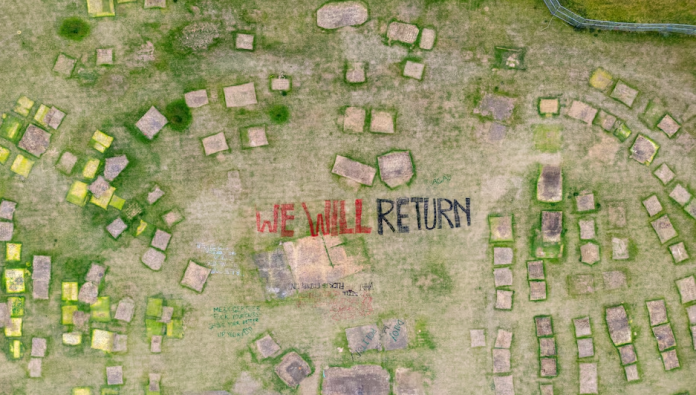After holding out for 62 days, pro-Palestinian protesters decided on Wednesday to obey a court order to dismantle their tents and leave the University of Toronto campus.
At a 5 p.m. press conference, protest organisers stated that they were packing up and leaving the King’s College Circle campus. They said they “refused to give the Toronto Police Service an opportunity to brutalise us.”
We are leaving to protect our community from violence.
An Ontario judge ruled on Tuesday that pro-Palestinian protesters must take down their tents and leave the University of Toronto. University officials offered concessions. However, a group of protesters wanted a timetable for action. That did not happen, Mohammad Yassin, one of the organisers, claimed.
Let us be clear — the university will disclose its investments, divest from companies profiting from Palestinian suffering and deaths, and cut ties with academic institutions tied to the Israeli war machine. The question is not if, but when?
Protest at King’s College Circle
The university went to court for an injunction to remove the camp of about 200 tents and protesters. The court also authorised the university to use police to clear the camp.
However, protesters who began occupying King’s College Circle in downtown Toronto on 2 May refused to obey. U of T Occupy for Palestine, organisers of the camp, stated in a post on X that the court gave the university the “immoral right to unleash police violence” on the students.
The university’s shameful attempt to use legal force to brutalize its own students — for the crime of protesting genocide — will go down in history as a disgraceful chapter for this institution.
Lawyers for the university argued in court that the protest violated school policy, made members of the university community feel unsafe and infringed on the free speech rights of others, according to CBC News.
The court found that the protesters prevented others from using the campus for 50 days, which constituted “irreparable harm.”
In my view, the harm to the university is greater if the injunction is not granted than is the harm to the respondents if the injunction is granted.
The protesters demanded that the university cut ties with Israel, cease co-operation with companies profiting from Israel’s war on Gaza, and sever relations with any academic institutions in Israel that are complicit in the war.
